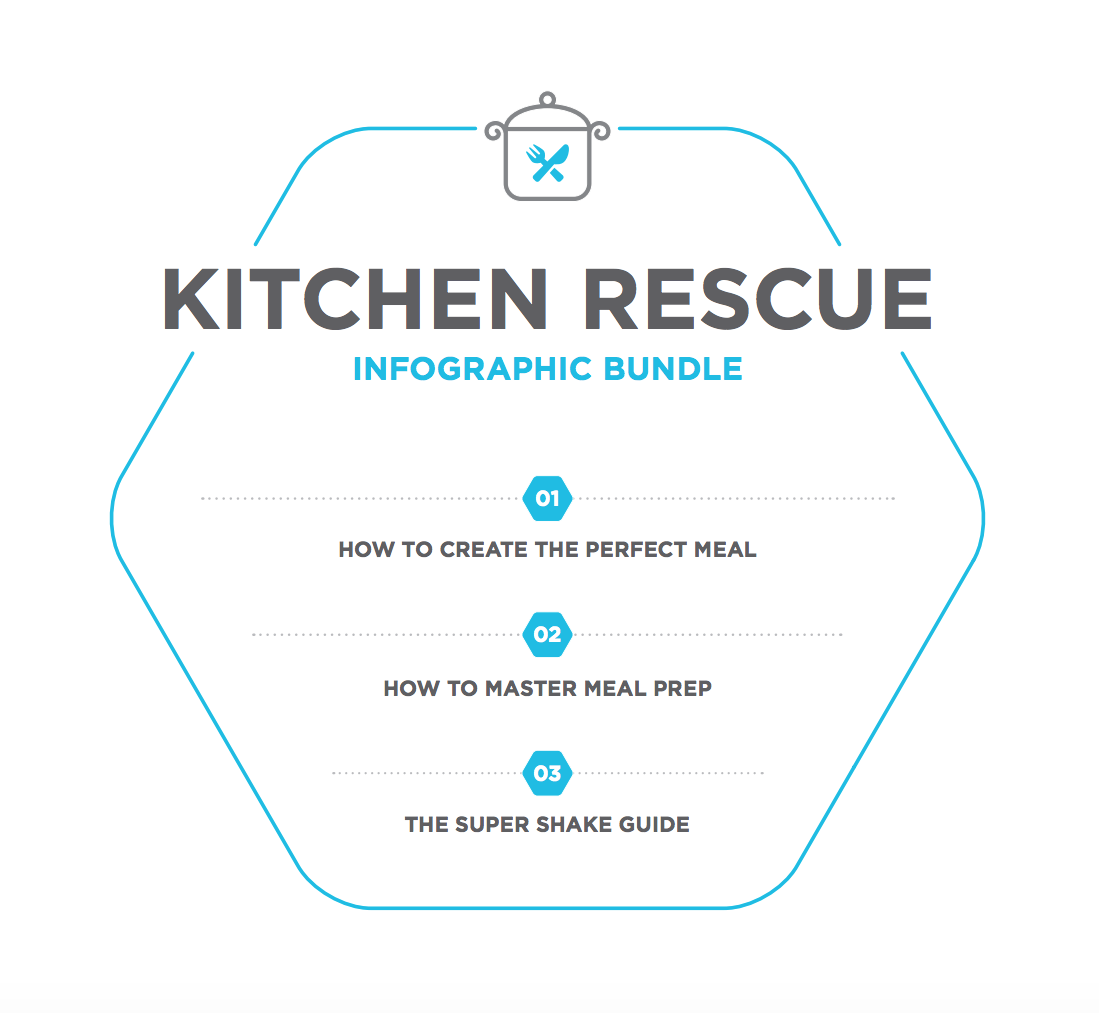|
For centuries, men and women have worked tirelessly to fit the physical moulds of their time. Diets, which have ranged from the straightforward to the colourful and kind of silly, have produced a wide range of results and all sorts of followings. Not long ago, the Atkins diet villainised carbohydrates and convinced millions to avoid starches of any kind. Today, the Paleo diet, which strives to emulate the eating habits and digestive systems of ancient humans who lived for many fewer years than people on average do today, is perhaps the most popular — or at least talked about — dietary fad. Soon there will be another fad that sweeps the dieting conversation. And another one after that. The question that seems to hover over all this diet talk is whether any of these weight loss schemes have worked. If one had, shouldn't it have survived the test of time? And if we've gone this long without a diet that has been shown to work — according to science, not simply the sellers of the fad — will one ever emerge that actually does? The short answer is no, according to Traci Mann, who teaches psychology at the University of Minnesota and has been studying eating habits, self-control and dieting for more than 20 years. Over the course of her research, largely conducted at the University of Minnesota's Health and Eating Lab, she has repeatedly asked these sorts of questions, and always found the same disappointing answers. Her findings, chronicled in her newly published book "Secrets from the Eating Lab," offer an interesting explanation as to why dieting over the long-term is actually impossible. Dieting - how it doesn't actually work and what science has found? If you want it in a nutshell: People are too hung up about their weight; people are handling that uptightness in a foolish way that doesn't work (that would be dieting); and the reason diets don't work is actually not what people think. It all starts with this notion that nobody has willpower. Everyone is blaming dieters for regaining weight they lose, and that's just wrong — it's not their fault they regain weight, and it's not about willpower, or any lack thereof. All this time, almost every single study done in eating labs, without really meaning to, showed some other thing that made dieters overeat. Time and time again it's actually some other thing that causes dieters to lose control of what they're eating. But the truth is that everything causes dieters to lose control of what they're eating, because dieting is bound to fail, it is destined to fail. So dieting doesn't work, and it's not for the reasons people think. What are these reasons we are looking past? What people tend to think is that if only Joe had self-control then he could succeed on his diet forever, and that's simply not true, as it turns out. After you diet, so many biological changes happen in your body that it becomes practically impossible to keep the weight off. It's not about someone's self-control or will-power. What kind of biological changes? There are three biological changes that take place that seem most important to me. The first is neurological. When you are dieting, you actually become more likely to notice food. Basically your brain becomes overly responsive to food, especially to foods high in fat and/or sugar. But you don't just notice it — it actually begins to look more appetising and tempting. It has increased reward value. So the thing you're trying to resist becomes harder to resist. So already, if you think about it, you're already fighting against your own biology so it's not fair. Then there are hormonal changes, and it's the same kind of thing. As you lose body fat, the amount of different hormones in your body changes. The hormones that help you feel full, or the level of those rather, decreases. The hormones that make you feel hungry, meanwhile, increase. So you become more likely to feel hungry, and less likely to feel full given the same amount of food. This is the problem with creating huge calorie deficits (diets) - you lose weight at such a rapid rate, one that isn't healthy because it doesn't allow your body a chance to adapt. It's like constantly jumping in and out of a freezing cold swimming pool - your body is always in shock and doesn't get a chance to get used to the water. Again, completely unfair. And the third biological change, which I think some people do know about, is that there are metabolic changes. Your metabolism slows down. Your body uses calories in the most efficient way possible. Which sounds like a good thing, and would be a good thing if you're in the middle of a famine and you're starving to death. But it isn't a good thing if you're trying to lose weight, because when your body finds a way to run itself on fewer calories there tends to be more leftover, and those get stored as fat, which is exactly what you don't want to happen. So calling it unfair doesn't even begin to describe the injustice. How could it when you have to fight against all of that? You can do it, potentially, but it's going to take over your life. And that's no way to live. Dieting is actually a lot like starving, physically. It's living like you're starving. A lot of people do it, but what they're actually doing is living as if they're starving. They're putting their body into that exact same catabolic state that it would be in if they were literally starving to death. But there's an entire industry that profits from convincing people that just the opposite is true. How do you reconcile that? Well, the first thing is that you can't believe anything that they say. And that's by definition, because their job isn't to tell you the truth — it's to make money, and so they lie. These companies make their money off failure, not success. They need you to fail, so you'll pay them again. One-time customers are not the sort of thing that keep these diet companies in business. What do I say to someone who says 'I followed or have been following so and so diet, and I've lost weight, I feel better, it's working'? I would tell them that they're in the honeymoon stage. That early stage is great, but it really is a honeymoon stage, and it's going to get a lot harder soon. For practically any diet — crazy, or not crazy sounding — in that first 6 to 12 months, people can lose a lot of weight (a lot of the weight will be muscle too which is not good). But the short-term isn't the whole story. Everyone acts like the short-term is the whole story, and that anything that happens later is the dieter's fault and not really part of the diet. People act like the only part that is the diet's fault is the beginning bit. The long-term part, people always say that's not the diet, that's the person. And yet, it's clear that that's not true. It's over the long term that you see all these biological changes take control. One of the most glaring problems with dieting is how we define a successful diet. What are we getting wrong?When people lose weight on a diet, they call it a success. And if the weight comes back on, they don't say that the diet wasn't successful — they say 'I blew it.' But that's not correct. It's all part of the diet. Scientists have conducted studies where they have brought dieters and non-dieters into the lab, and distracted them a little bit. What they have found is that when distracted, dieters eat more than non-dieters. In fact, distraction only affects how much dieters eat. A simple little thing like that tells you that if you're trying to resist eating, the subtlest things can mess you up. All these little things cause dieters to fail in resisting food that don't really affect people who aren't dieting. Through the years, I have looked tirelessly for things that help people diet, but all I have ever found are things that trip them up. What about willpower? People love to talk about willpower as though it's what separates the winners from the losers. Is that fair? An idea that I want to float, is that willpower is actually a very different thing when you talk about eating. Willpower can be extremely useful in certain parts of people's lives. But when it comes to eating, it's just not the problem. It's not the fix. Let me try to explain why. Let's say you're in a meeting, and someone brings in a box of doughnuts. If you're dieting, now you need to resist a doughnut. That is going to take many, many acts of self-control. You don't just resist it when it comes into the room — you resist it when you look up and notice it, and that might happen 19 times, or 90 times. But if you eat it on the 20th time, it doesn't matter how good your willpower was. If you end up eating it, you don't get credit for having resisted it all those previous times. In virtually any other arena, that would be an 'A+', but in eating that's an 'F'. So it's for reasons like this that someone's willpower, which is measurable by the way, does not correlate with people's weight. It just doesn't. But, and here's the thing, it does correlate with tons of other stuff, like exam results and all kinds of other achievement outcomes. And if you think about it, that makes perfect sense. If you're studying for an exam, and give in to checking Facebook, those 10 minutes that you waste don't erase the studying you did before. You haven't lost anything. Whereas with eating, when you suffer that one moment of weakness, it actually undoes all the successful willpower that came before it. So trying to lose weight is pointless? Or are we simply going about it the wrong way? People should definitely be a healthy weight (I don't say 'normal' weight because 'normal' these days has become medically overweight/obese) and if they're not, take steps to losing weight - but definitely not by going on a 'diet' that denies you of certain food groups and/or sufficient calories. People trying to lose weight are much more likely to succeed long-term once they realise that this process takes time and there is no quick fix or magic pill (people don't get fat over night so they shouldn't expect to lose it over night). They need consistency over a long period and you don't get that with diets because they're short-term fixes. In order to give people the best chance to stay consistent they need a system that isn't too drastic and/or causes them too much pain - physically and mentally that will either deter them from starting or failing very quickly if they do try. So a system that:
The key is to create healthy habits and make nutrition a lifestyle, not a diet. People who have the means to not be starving to death should not be starving to death. How can we ask that of people? It's crazy! What's really sad to me is that it isn't just society that blames dieters when they gain weight. Dieters blame themselves, and I really think that is a shame. They're in a situation where food looks more tempting, they're hungrier than they should be, their body is getting by on fewer calories, and everything is just working against them. And yet people are always so quick to say, 'well, it was their hand holding the fork.' I find that to be such a frustrating comment to respond to. Yes, it is their hand holding the fork, but it's the context that is much more important here. There are so many things that affect your ability to control what you do with that fork that make it impossible to not pick it up, like the things I've covered above in this blog, plus other things I haven't like the fact that food manufacturers market their products as 'healthy' or not that bad, when in actual fact they're terribly unhealthy so people think they're diet is good when in reality it's not. If I could help people understand anything, it would be nutrition because at the moment people are completely mislead. This is why at Mark Personal Training, a massive part of my coaching for my clients is about nutrition, because in my opinion it is responsible for 70% of their weight loss success or failure and if their nutrition isn't on point then they won't see the results we want. They learn a system that they will use for the rest of their lives and once they know how, it's pretty darn simple - ironically simpler than most fad diets. If you'd like to learn more about my nutritional system that is used by my clients from all around the world and finally getting some long-term weight loss results then get in touch with me today. I'd like to find out more about you and what you've tried before and what you feel your problem is. No to diets. Yes to lifestyle nutrition.
0 Comments
Leave a Reply. |
Services |
Company |
|
|
© COPYRIGHT 2015. ALL RIGHTS RESERVED.
|
Website Design by My PT Website
|



 RSS Feed
RSS Feed